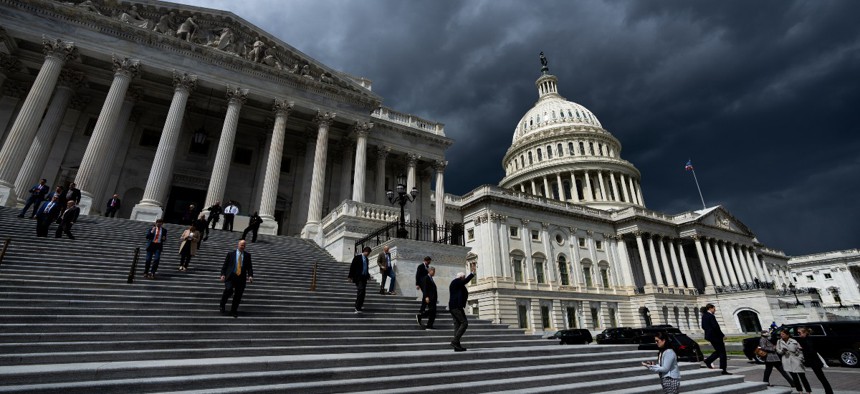Partisan Rift Stalls Efforts to Secure Critical Infrastructure from Cyberattack

Bill Clark/CQ-Roll Call, Inc via Getty Images
U.S. Cybersecurity Policy heads back to square one as a public-private bargain that emerged from the Congressionally mandated Solarium Commission breaks down.
Senior House Democrats and Republicans disagree on legislation Rep. John Katko, R-N.Y., has proposed that calls on the Department of Homeland Security to identify “systemically important critical infrastructure”—SICI—for prioritizing the government’s efforts to improve the nation’s cybersecurity.
“It is not enough to simply identify these most critical entities, nor is it consistent with what the solarium Commission proposed,” Rep. Yvette Clarke, D-N.Y., chair of the House Homeland Security Committee’s panel on cybersecurity, infrastructure protection and innovation, said during a hearing Wednesday. “We need to be able to answer the question, ‘what do these companies need to do as a result of their designation?’ And ‘what does the federal government need to do for them?’”
The Katko bill, and identical legislation proposed by Sen. Angus King, I-Maine, in the upper chamber, draws from a recommendation of the congressionally mandated Cyberspace Solarium Commission. The commission, which was composed of members of Congress from across the political spectrum, executive-branch officials and major private-sector representatives, proposed that entities designated systemically important critical infrastructure be allowed some protection from liability and access to information in exchange for implementing appropriate cybersecurity controls.
Katko is ranking member of the House Homeland Security Committee. His legislation, which has a Democratic co-sponsor–Rep. Abigail Spanberger, D-Va.—who has not been active on cybersecurity policy, covers the first part of the Solarium Commission’s bargain by calling on DHS to identify the entities and outlining benefits they would receive. But it does not approach a discussion of appropriate security controls companies should be required to implement.
CISA, meanwhile, has made a point of noting the agency is taking on the work of identifying the entities in question, regardless of whether there is legislation instructing them to do so.
“It's clear that CISA's Systemically Important Entities effort is engaged in a rigorous identification process, but the next steps of what to do with the list appear less clear to me than the Solarium Commission's vision of SICI, which calls for specific benefits and obligations to SICI entities,” Rep. Jim Langevin, D-R.I., said.
Langevin chairs a key cybersecurity panel on the House Armed Services Committee and is co-chair of the House Cybersecurity Caucus. He and King were both members of the Solarium Commission.
Agreement also broke down along partisan lines regarding the use of regulatory enforcement versus the voluntary approach that has been at the center of cybersecurity policy over the last decade.
Rep. Andrew Garbarino, R-NY, who is on Katko’s SICI legislation and is ranking member of the committee’s cybersecurity panel, asked CISA Executive Director Eric Goldstein to speak to the importance of CISA’s voluntary approach in working with the private sector. Katko also noted, regarding CISA’s work with the private sector: “We can't lose sight of the value of those voluntary relationships.”
Clarke, in contrast, said, “I think it's time to be candid about the limits of these voluntary partnerships and authorities … The throughline for all these efforts, is that at some point, Congress or the administration, or both, decided to punt on the question of benefits and burdens. That will not happen on my watch."
“There are conflicting opinions between my colleagues and myself on the right direction for SICI,” Katko acknowledged.
Testifying before the committee, the Government Accountability Office’s Tina Won Sherman said, “The diffuse and voluntary nature of the critical infrastructure landscape continues to pose a range of challenges to this community,” including for implementing security standards.






